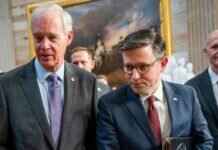All aboard the chaos train! NJ Transit is causing quite the stir by potentially canceling train and bus services to MetLife Stadium for the upcoming Shakira concerts. Why, you ask? Well, it seems that there’s a looming threat of a rail strike by the end of the week. This news is sending shockwaves through the hearts of hundreds, if not thousands, of attendees, especially for Thursday’s sold-out show.
The tension is palpable as representatives from NJ Transit and the Brotherhood of Locomotive Engineers are set to clash in Washington, D.C. on Monday, all thanks to federal arbitrators. It’s like a showdown in the wild west, except with trains and buses instead of horses and cowboys. This could mark New Jersey’s first major rail strike in forty years, a milestone nobody really wanted to reach. The National Mediation Board is stepping in, trying to play peacemaker before chaos ensues, urging the two sides to come to an agreement before the strike throws 350,000 riders into disarray.
“I’m not really sure why this matters, but I welcome the National Mediation Board’s interference in this mess. Let’s avoid a strike, shall we? It’s not like we want to disrupt the lives of hundreds of thousands of people, right?” said NJ Transit President & CEO Kris Kolluri, trying to keep the peace. But as talks between NJ Transit and the Brotherhood of Locomotive Engineers hit a roadblock, the Friday announcement of the strike becomes more of a sure thing. All eyes are on the showdown in Washington, where the fate of the rail service hangs in the balance.















